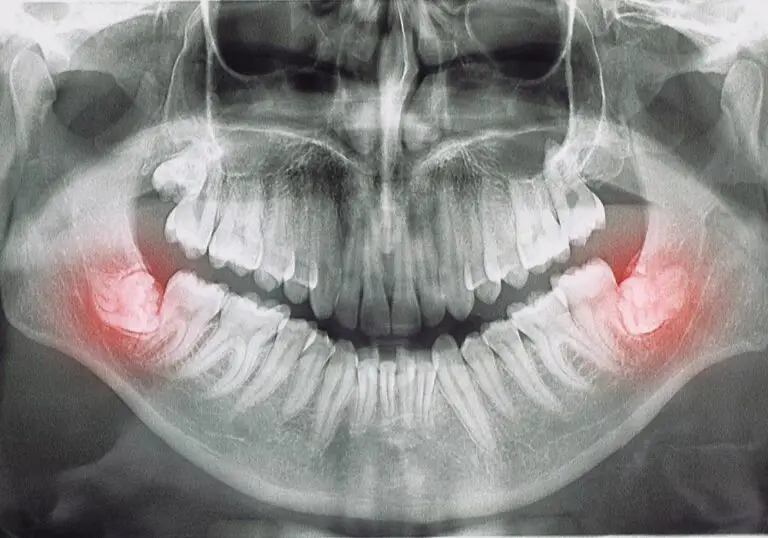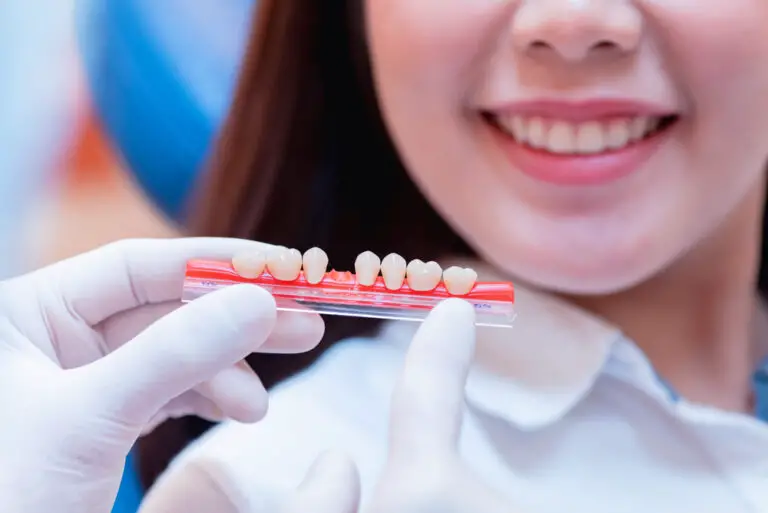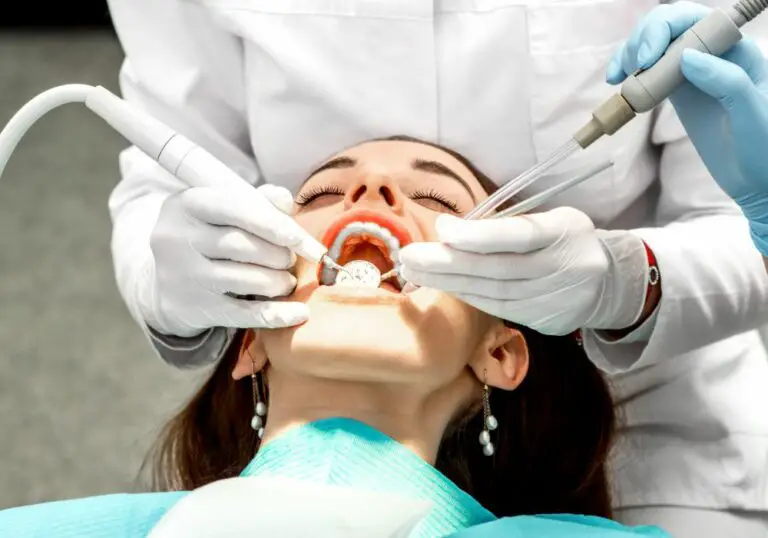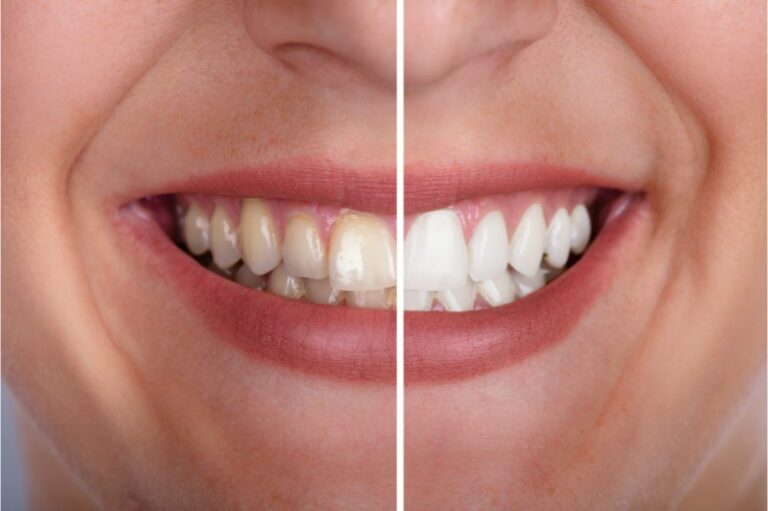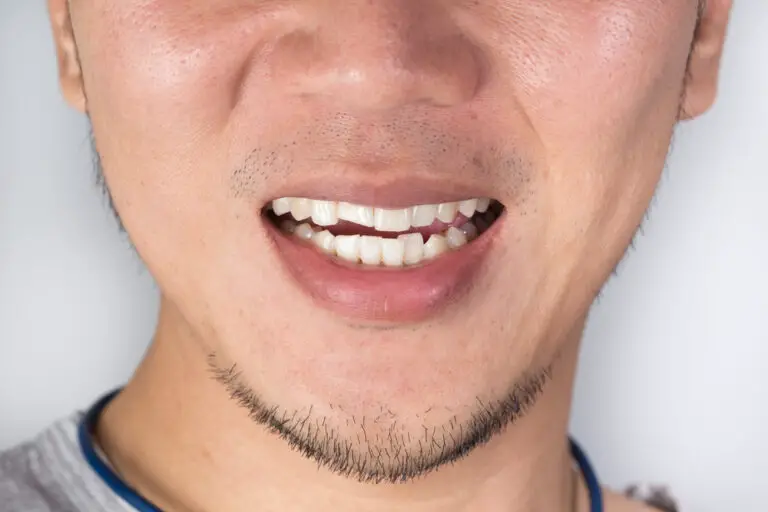Smoking cigarettes, cigars, pipes, and other tobacco products is extremely detrimental to oral health and dental hygiene. The thousands of chemicals in tobacco smoke directly damage soft tissues and bone in the mouth. While taking precautions can minimize some harm, maintaining truly healthy teeth while regularly smoking tobacco is exceptionally challenging.
Widespread effects of smoking on the mouth
Tobacco use impacts every aspect of oral health in various ways:
Gum disease
- Smokers have double the risk of developing gum disease, also called periodontal disease. The chemicals in smoke irritate the gums and make them more prone to inflammation.
- Gum disease starts as gingivitis, where gums get swollen, turn red, and bleed easily when brushing or flossing. It can advance to periodontitis where gums pull away from the teeth and supportive gum tissue and bone are destroyed.
- If untreated, periodontitis can cause permanent loose teeth, eventual tooth loss, receding gums, and exposed tooth roots which are sensitive and prone to decay.
- Research confirms the more you smoke, the worse the periodontal damage. Heavy smokers have up to 5x the risk compared to light smokers.
Tooth decay
- Smoking reduces saliva production in the mouth. Saliva helps neutralize cavity-causing acids and washes away food particles.
- Insufficient saliva allows acids to quickly demineralize and dissolve the tooth’s enamel surface, leading to tooth decay. Dry mouth is a major contributor to increased dental caries and cavities in smokers.
- Stained and discolored teeth caused by smoking also make it harder to spot decay in its early stages. Decay is often more advanced once detected.
- Tooth decay affects all types of teeth but is worst in molars which suffer the highest rates of decay requiring fillings or extractions.
Oral cancer
- Smokers have 4-6x the risk of developing oral cancer compared to non-smokers. At least 75% of all oral cancer cases are attributable to smoking and tobacco use.
- Oral cancer risk rises the more heavily you smoke and the longer you have smoked over your lifetime. Risk drops significantly for those who quit by age 30.
- Besides lips and cheeks, smoking is linked to cancers in the mouth, tongue, floor and roof of the mouth, gums, and throat.
- Oral cancer screening by a dentist is critical for early detection. Without screening, oral cancers are typically not diagnosed until an advanced stage when mortality rates are significantly higher.
Delayed healing after dental procedures
- Nicotine in cigarettes causes vasoconstriction – the narrowing of blood vessels including those in the mouth. Reduced blood flow starves oral tissues of oxygen needed for rapid healing.
- Post-surgery and after invasive dental treatments like gum grafting, tooth extractions, or implants, the recovery process is lengthened which raises the risk of developing infections and other complications.
- Dental implants, for example, fail more often in smokers because less blood supply inhibits the bone from properly fusing with the implant.
Esthetic effects – tooth discoloration, stained teeth, and bad breath
- Tar and nicotine stain teeth, leaving them progressively darker over time with a yellow, brownish, or dull tint.
- Smoking is also a major cause of bad breath due to the chemicals and gases expelled that create an unpleasant odor.
- While professional teeth whitening can brighten discoloration somewhat, it is very difficult if not impossible to fully remove all deep-set smoking stains.
Adverse impacts on dental treatments
In addition to generally jeopardizing oral health, smoking makes many common dental treatments less likely to succeed and more prone to complications, as covered in detail in the sections below.
Can you really have healthy teeth and gums if you smoke?
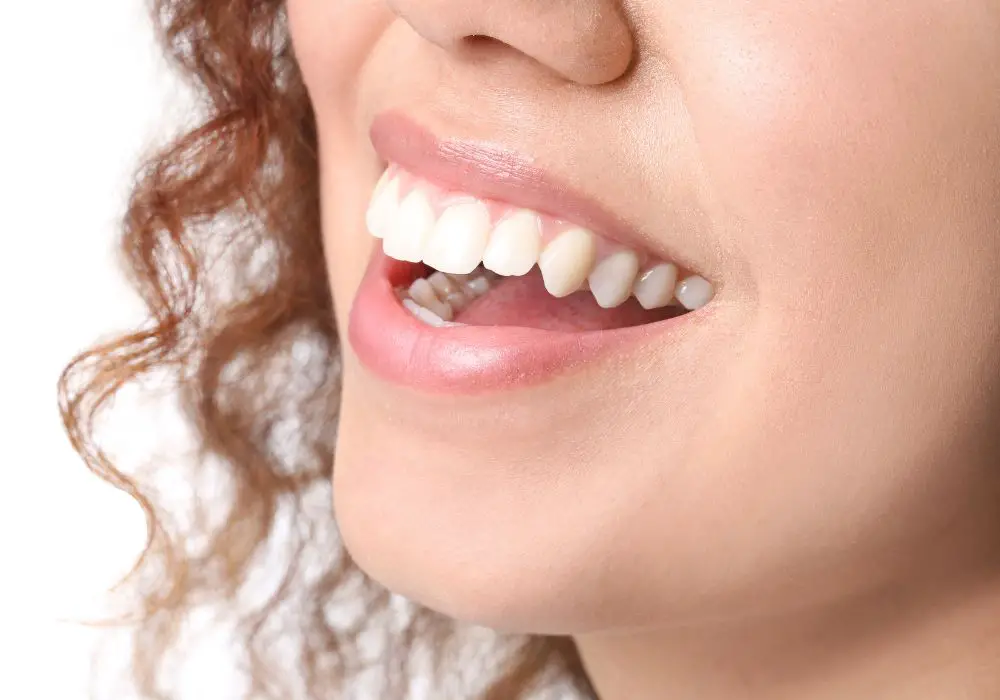
Given the wide-ranging oral health risks posed by smoking, maintaining truly healthy teeth and gums is extremely challenging but not necessarily impossible for smokers who take rigorous precautions.
Quitting smoking
Without question, quitting smoking is the single most effective way to protect and optimize oral health. Most of the risks are reduced close to the level of never-smokers within 5 to 10 years after quitting. Successful smoking cessation leads to healthier mouth tissue, whiter teeth, minimal oral cancer risk, and much lower likelihood of losing teeth.
For current smokers, the prospect of quitting may seem daunting due to tobacco’s highly addictive nature. But numerous nicotine replacement products and prescription medications are available to help manage withdrawal symptoms. Consulting a physician provides access to tools that can significantly improve your chances of quitting permanently.
Diligent oral hygiene
Careful brushing and flossing twice a day helps counteract some of the increased risk of gum disease and tooth decay exacerbated by smoking. Using high-concentration fluoride toothpaste strengthens enamel against acid attacks. Antimicrobial mouthwashes reduce bacteria growth accelerated by tobacco use.
Seeing the dentist for professional cleanings 3-4 times a year rather than just twice removes more harmful tobacco stains and plaque that lead to periodontal problems.
Limiting sugar and acidic drinks
Drinking water frequently stimulates saliva production to help neutralize the acidic environment caused by reduced flow. Avoiding sugary or acidic drinks cuts down on the availability of sugars that feed the harmful bacteria.
Rinsing after eating
Rinsing out the mouth with water after meals removes some of the leftover food particles and debris where bacteria thrive and produce enamel-eroding acids.
Oral cancer screenings
Getting regular oral cancer screenings by your dentist along with self-exams is critical for early detection of any dangerous lesions or growths. The earlier cancer is identified, the less invasive the treatment and better chances of survival.
Consider vaping
Smokeless tobacco alternatives like nicotine gum, patches, lozenges or vaping may satisfy nicotine cravings while eliminating exposure to tars and some of the harshest chemicals found in traditional cigarette smoke. More research is needed, but vaping appears somewhat less harmful to oral tissues than regular smoking, though not completely risk-free.
So while difficult, taking all of these precautions may help preserve reasonably healthy teeth even with a smoking habit, but risks still remain substantially higher compared to non-smokers.
Dental treatments impacted by smoking
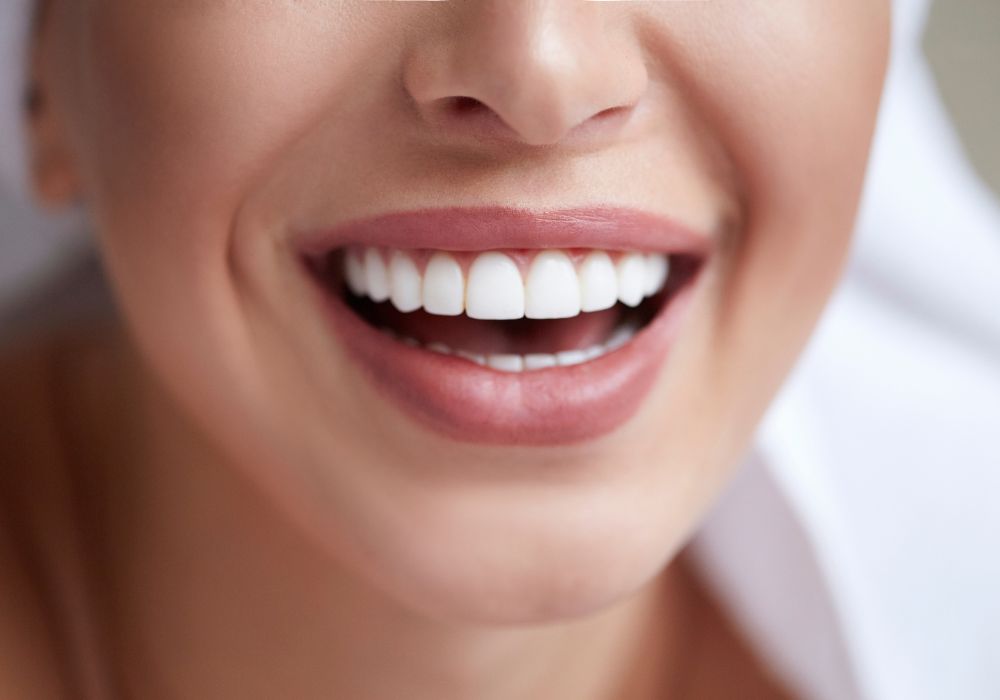
Beyond generally jeopardizing oral health, smoking makes several common dental treatments more challenging with lower success rates.
Dental implants
Dental implants are the gold standard for replacing missing teeth. Implants fuse with the jaw bone to durably support crowns and bridges for decades. But they fail much more often in smokers, especially heavier smokers. Treatment is also longer and more involved.
- The nicotine in cigarettes reduces blood flow which inhibits the bone from adequately fusing with the implant. This can lead to the implant becoming loose and failing soon after placement.
- Overall dental implant failure rates range widely from 5-20% higher in light smokers up to 40-50% higher in heavier smokers compared to non-smokers. The more you smoke, the less likely implants are to properly integrate and last.
- Additional procedures like bone grafting are often needed to compensate for diminished bone density before attempting implant placement.
- Due to increased failure risk, smoking patients often need their implants redone or replaced which adds major additional costs of $2000-$5000 per implant.
- Healing periods after surgery are extended in smokers which delays getting the implants fully functional.
For the best chances of success, smoking cessation for at least 1-2 months prior to implant surgery is recommended along with diligent hygiene and following all post-op instructions closely. But failure rates still tend to run higher than average.
Root canals
Root canals treat deep dental infections by removing the soft pulp inside teeth and sealing the space. Like implants, reduced blood supply caused by smoking makes root canal therapy more likely to fail.
- Success rates of initial root canal procedures are 10-15% lower in smokers compared to never-smokers. This leads to unnecessary loss of more teeth that could have been saved with a successful canal.
- Failed root canals also often result in extraction and installation of a bridge or implant rather than saving the natural tooth. This costs significantly more.
- Even if initially successful, root canal treated teeth in smokers fail more frequently later on due to fractures or re-infection. This requires repeat canals or extractions down the road.
- Apicoectomies which attempt to repair the tips of infected tooth roots by oral surgeons are less successful as well in smokers. This is again attributed to decreased blood flow and ability of the bone to heal properly.
Taking antibiotics before and after treatment and closely adhering to follow-up care recommendations helps optimize success rates. But root canals carry higher risks and costs for smokers overall.
Gum disease treatments
Severe gum disease requires invasive procedures like gum grafting to replace lost gum tissue or bone grafting to stimulate regrowth of destroyed bone. Like other treatments, impaired healing reduces success rates of regenerative periodontal procedures by roughly 10-20% in smokers based on various studies.
The gums and bone are less able to reattach firmly, which can lead to the need for additional grafting or extraction and replacement of weakened teeth. Quitting smoking for at least several weeks before gum surgery is advisable.
Teeth whitening
Professionally administered teeth whitening using custom bleaching trays and high-concentration peroxide gels can brighten stained, discolored teeth by up to 8-10 shades typically. But for heavy smokers, removing deep set stains caused by years of tobacco use is much more challenging.
- Severely tobacco-stained teeth are less responsive to whitening, lightening just 2-4 shades on average.
- Often requires 8-10 applications versus 4-6 for non-smokers.
- More frequent touch-ups are needed as stains return more readily.
- May need supplementary polishing and alternative treatments like microabrasion.
- Some grayish undertones or dark spots may persist; full whitening is difficult.
For moderate smokers, bleaching can still substantially improve tooth appearance but max whiteness is harder to attain compared to non-smokers.
Orthodontic treatment
The oral health risks created by smoking like gum disease and weakened bone negatively impact orthodontic treatment involving teeth straightening and realignment.
- Osteoporosis of the jaw bone caused by nicotine makes teeth more prone to loosening during realignment.
- Poor blood flow also inhibits the bone from remodeling as quickly to allow tooth movement. This extends overall treatment time.
- Higher rates of periodontal disease make keeping teeth and gums very clean during orthodontics more challenging.
- Oral surgery often needed as part of repositioning teeth carries greater risks for healing complications.
With diligence and close coordination with the orthodontist, braces and teeth straightening can still usually be accomplished successfully but does become more involved for smokers.
Financial impact of smoking on dental treatments

The lower success rates, more extensive procedures, and greater likelihood of complications and repairs with dental treatments for smokers makes them significantly more expensive on average.
- A single dental implant may cost $2000-$5000 more over its lifetime for a smoker – up to $12,000 more according to some estimates.
- Failed root canals then needing extraction and bridge placement can be $2000-$3000 rather than $1000-$1500 to save the tooth with a successful canal.
- Gum grafts, bone grafts, and regeneration procedures typically cost 20-40% more due to the increased difficulty and likelihood of retreatment.
- A full mouth reconstruction with 10 or more new crowns can total $30,000 or more versus $20,000 for a non-smoker.
One analysis by a dental insurance company found smokers incurred 51% higher dental costs over their lifetime on average. This amounts to thousands of dollars in additional expenses for restorations, implants, repairs, and treatments caused specifically by smoking.
Besides additional costs for procedures, smokers also face:
- Higher dental insurance premiums – 10-50% more for premiums and lower annual benefits capped at $1000-$1500 instead of $2000.
- Fewer payment assistance options – most third party financing programs exclude smokers.
Optimizing dental treatment success as a smoker
While risks and costs are elevated, there are still things you can do to maximize the likelihood of successful dental treatments if you do smoke:
- Communicate smoking habit – Let your dentist know you smoke so they can take appropriate precautions and properly set expectations.
- Quit temporarily – Abstain from smoking for as long a period as you can before any major treatment like implants, oral surgery, or periodontal procedures. At minimum, stop smoking for 1-2 weeks but longer is better.
- Stick to oral hygiene – Closely follow your normal regimen of brushing, flossing, and mouthwash leading up to appointments. Rinse with antimicrobial solutions after smoking.
- Follow instructions – Carefully adhere to all pre and post-op directions from your dentist, especially taking prescribed medications on schedule. Quickly report any complications.
- Professional cleanings – See the hygienist for thorough cleanings every 3 months to remove accumulated staining and tough tobacco tar.
- Accept higher costs – Be prepared to incur more expense for things like bone grafts, temporary prostheses, payments for re-treatment if initial efforts fail, etc.
- Consider vaping – Talk to your dentist about possibly transitioning to vaping instead of traditional smoking if willing and able. While not risk-free, vaping appears less harmful to oral tissues overall.
Being proactive allows you and your dentist to take steps that can maximize the chances of success and minimize complications. But risks will remain higher compared to non-smokers.
Smoking cessation and improvements in oral health
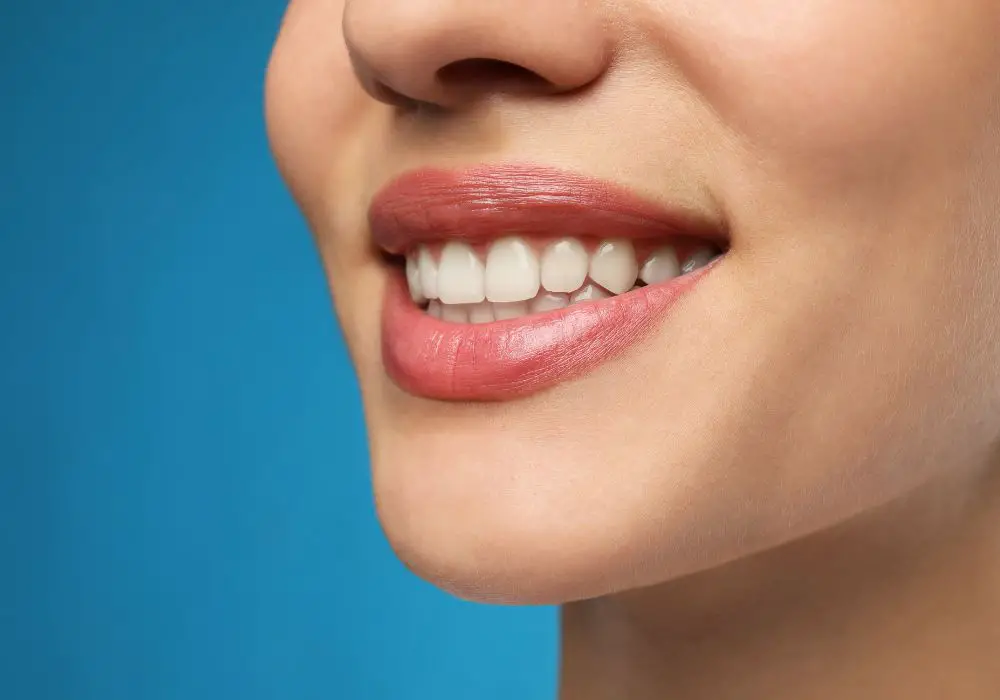
Quitting smoking leads to both short and long-term improvements in oral health:
After 8 hours
- Carbon monoxide level decreases
- Oxygen level in blood increases to normal
After 24 hours
- Risk of heart attack starts decreasing
- Lung function and circulation improves
After 48 hours
- Nerve endings regenerate rapidly
- Senses of taste and smell sharpen
After 72 hours
- Breathing becomes easier as bronchial tubes relax
- Lung capacity increases up to 30%
- Tooth appearance may lighten slightly
After 2 weeks
- Blood flow and circulation improves significantly
- Mouth sores and gum problems decrease
- Oral cancer risk rapidly declines
After 5 years
- Oral cancer death rate is reduced by almost 50%
After 10 years
- Oral cancer mortality rate approaches that of someone who never smoked
- Receding gums may partially regrow
- Severely stained teeth show heightened whitening response
After 15 years
- Precancerous mouth lesions are highly unlikely
- Risk of tooth loss is close to a never-smoker
- Gum disease risk is minimized
Clearly, smoking cessation leads to rapid improvements in gum health and reduced oral cancer risks within weeks and dramatic gains over longer periods. Seeking support during the quitting process greatly improves your chances of successfully kicking the habit and enjoying renewed oral health.
FAQs about smoking and dental health
Are cigars or pipes safer for my teeth than cigarettes?
No, regular cigar and pipe smoking poses similar risks of mouth cancer, gum disease, and tooth decay. Any tobacco product can endanger oral health since all contain carcinogens and toxins that accumulate in mouth tissues. The best practice is abstaining from all tobacco.
Is smokeless tobacco like chewing or dipping better for dental health?
Smokeless tobacco still increases your risk for mouth cancer, gum recession, and other oral diseases, though likely less severely than smoking which also impacts the lungs. But dentists still strongly discourage all tobacco, even smokeless varieties.
Is vaping or using e-cigarettes less harmful for my mouth than regular cigarettes?
Evidence so far indicates vaping and e-cigarettes are likely less damaging than traditional smoking, but not completely risk-free. More research is needed. Consult your dentist about whether transitioning to vaping could benefit your specific oral health situation.
Does smoking marijuana cause the same dental problems as smoking cigarettes?
Yes. Marijuana smoke contains many of the same toxins, chemicals, and carcinogens as tobacco which can cause oral cancer, gum disease, enamel erosion, and reduced blood flow. Frequent pot smoking approximately doubles oral cancer risk.
Can smoking stains be removed fully with professional teeth whitening?
Whitening treatments like custom trays with concentrated peroxide gels can often substantially improve the appearance of smoker’s stained teeth, lightening by 4-6 shades typically. But removing very deep-set brown tobacco stains that penetrate the enamel over many years is very difficult, if not impossible in some cases.
Key Takeaways
- Smoking severely impacts oral health, causing gum disease, tooth decay, mouth cancer, slower healing, and tooth loss. Keeping a healthy mouth while smoking is exceptionally challenging.
- Dental treatments like implants, root canals, and gum surgery have much higher failure rates for smokers, often requiring expensive re-dos or replacements.
- Quitting smoking is the single best way to improve dental and overall health. The benefits start quickly and accrue over time.
- Temporary smoking cessation before major dental treatments, communicating with your dentist, and diligent hygiene can help maximize chances of success.
- Support through counseling and nicotine replacement products improve the likelihood of quitting smoking permanently and gaining renewed oral health.

